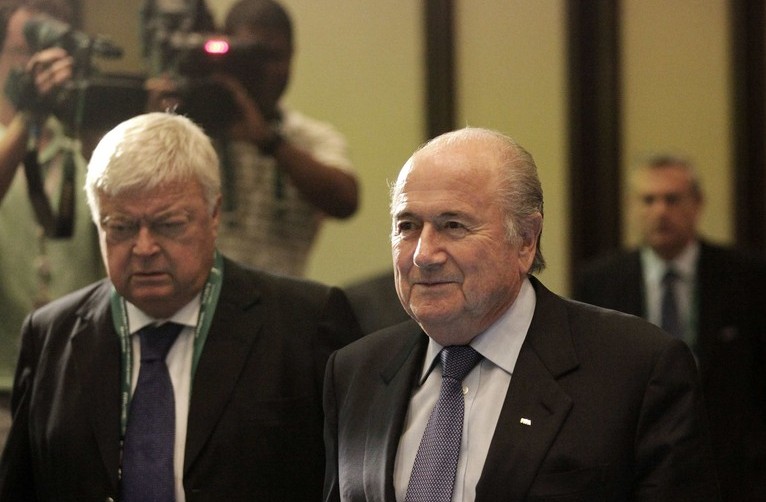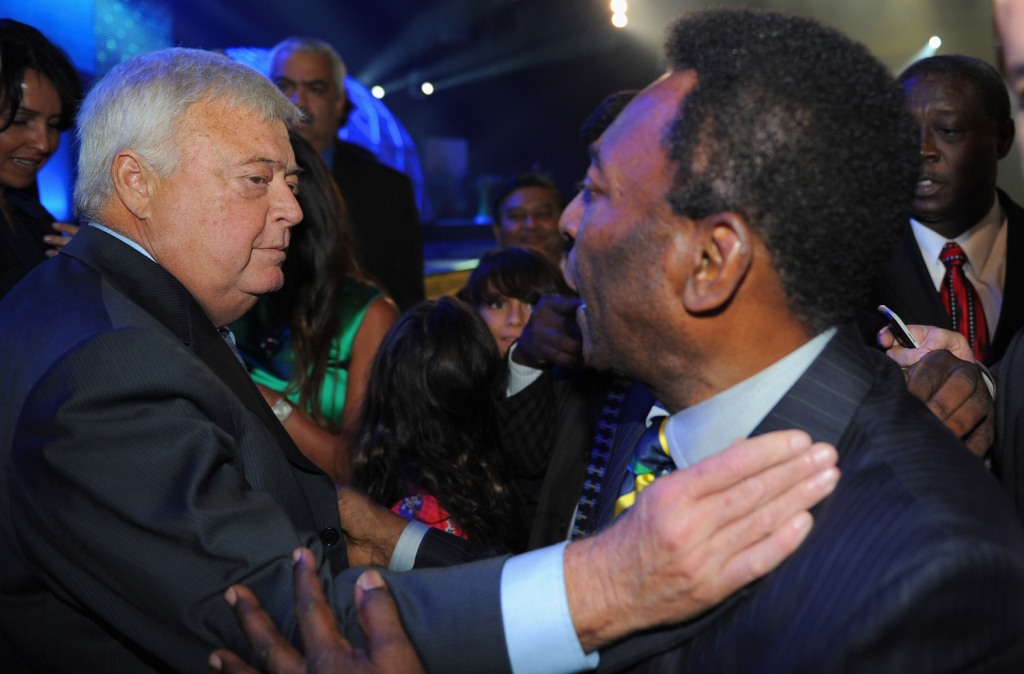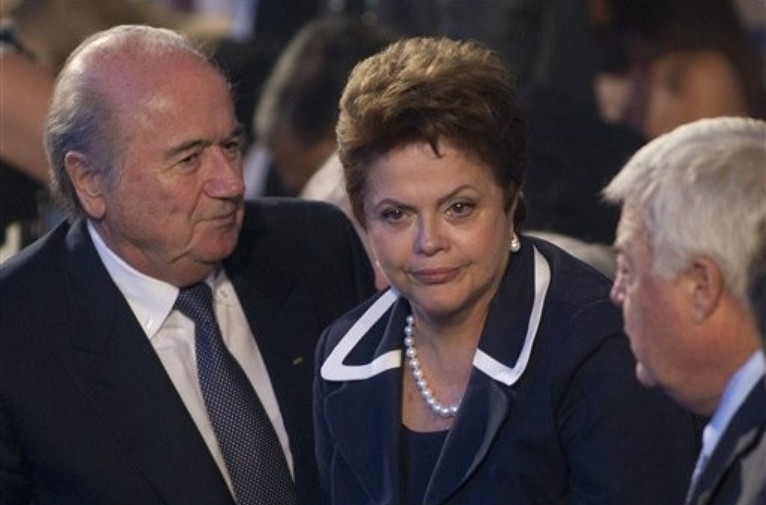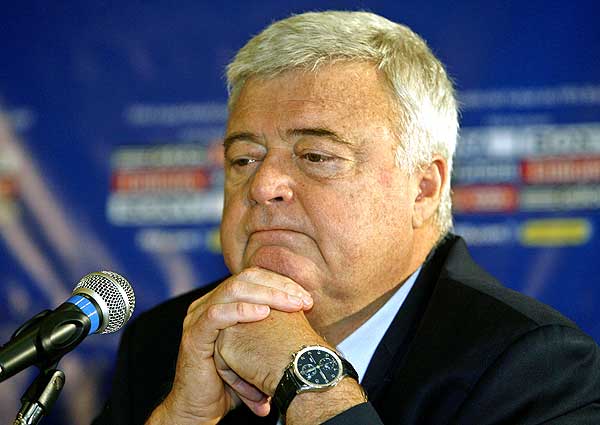By Andrew Warshaw
March 13 – Ricardo Teixeira’s (pictured) decision to throw in the towel as head of Brazil 2014 may have come as little surprise but it nevertheless heaps even more negative publicity on a tournament that continues to lurch from one crisis to another.
Teixeira’s decision to step down from his post – and, after 23 years, the Presidency of the Brazilian Football Confederation (CBF) – will be greeted with relief by those who felt he was hindering progress after becoming embroiled in a succession of damaging scandals.
But, somewhat embarrassingly, it appears the announcement of his “permanent resignation” was made public before FIFA had even been told.
A brief statement from world football’s governing body said it had not received any formal notification even though it was read out by Teixeira’s successor, José Maria Marin.
“At the time of writing FIFA has not received any official information from CBF or the Local Organising Committee of the 2014 FIFA World Cup,” the statement said.
“Therefore, FIFA cannot make any comments on this matter for the time being.”
Whether FIFA was or was not told in advance of the pivotal development in the never-ending Teixeira saga, the move was almost inevitable given the amount of controversy the 64-year-old had generated in recent months.
Last week he took what was described as an indefinite medical leave of absence just as the accusations of impropriety were mounting.
State federations voted unanimously for him to stay on afterwards but it seemed highly improbable that he could ever return as the leading figurehead in Brazil’s preparations for the World Cup.

The next question is what happens to his seat on the FIFA Executive Committee, which meets at the end of this month with World Cup progress – or lack of it – sharing top billing with the first official update on Sepp Blatter’s (pictured right) much-publicised reform proposals.
Under FIFA rules, Executive Committee members are appointed by their own confederation but it is unclear when or whether Teixeira, who has been an Executive Committee member since 1994, will actually give up his seat.
What is clear, however, is that his downfall is all but complete.
Even if he had stayed healthy, it seemed only a matter of time before the great survivor would finally have to admit defeat – not only against the media who uncovered a string of corruption allegations but also against the mounting tide of adverse public opinion in his homeland.
No sooner was Teixeira’s announcement made public than former Brazilian striker Romário, now a Congressman, lambasted the man whose power base has taken a massive hit.
“Today we can celebrate,” Romário posted on his Twitter and Facebook pages.
“We exterminated a cancer from Brazilian football.
“Finally, Ricardo Teixeira resigned.”

A fraud investigation at home into his financial affairs; a public row with Pelé (pictured), Brazil’s greatest footballing icon; allegations of money laundering relating to a friendly match between Brazil and Portugal in 2008; a key figure in the ISL scandal implicating him for allegedly taking kickbacks.
The list just went on and on.
With Sepp Blatter determined to publish documents relating to the collapse of ISL, FIFA’s former marketing partner, it seemed only a matter of time before Teixeira would ultimately join the catalogue of allegedly corrupt cronies no longer able to hide behind their elevated positions of power.
The task of his successor to speed up Brazil’s World Cup preparations with renewed vigour and transparency cannot be underestimated though he too attracted controversy back in January when he was caught on camera stealing a medal during a presentation ceremony.
Fortunately for Marin, he will be aided by Ronaldo and Bebeto, two Brazilian footballing legends recently brought on to the organising committee to provide fresh ideas and much-needed impetus.
The first task of the trio will be stabilising relations with FIFA general secretary Jérôme Valcke whose frustration with all the delays boiled over just over a week ago with those infamous “kick up the backside” comments that landed him in water that was as hot as the language he used.
Valcke was one of many who, according to insiders, had put pressure on Teixeira to relinquish his post.

Brazilian President Dilma Rousseff (pictured centre), it is understood, was another.
As the dust settles, Teixeira, a former son-in-law of former FIFA President João Havelange, will doubtless stress that he has never been convicted of any offence.
Having led Brazilian football since 1989, he will also point to the fact that he revamped a financially ailing federation.
He has always steadfastly denied any wrongdoing but in the end his past caught up with him.
Ironically, Havelange also quit the International Olympic Committee (IOC) last year just before an investigation was concluded into his involvement in the ISL affair.
The bottom line is that however many successes Teixeira can lay claim to, in the end they were outweighed by his shady business dealings, his apparent attitude of being untouchable and by genuine well-chronicled concerns that the most successful and revered footballing nation on earth, far from grabbing the bull by the horns, was lagging dangerously behind schedule in organising its first World Cup for over half a century.
Contact the writer of this story at zib.l1745185193labto1745185193ofdlr1745185193owedi1745185193sni@w1745185193ahsra1745185193w.wer1745185193dna1745185193
Related stories
March 2012: Under fire Teixeira quits as head of Brazilian football
March 2012: Teixeira takes indefinite medical leave
March 2012: We will organise an impeccable World Cup, insists Brazil 2014 boss Teixeira
March 2012: Ricardo Teixeira to remain boss of Brazilian football
February 2012: Teixeira future uncertain as he resumes top roles in Brazil

